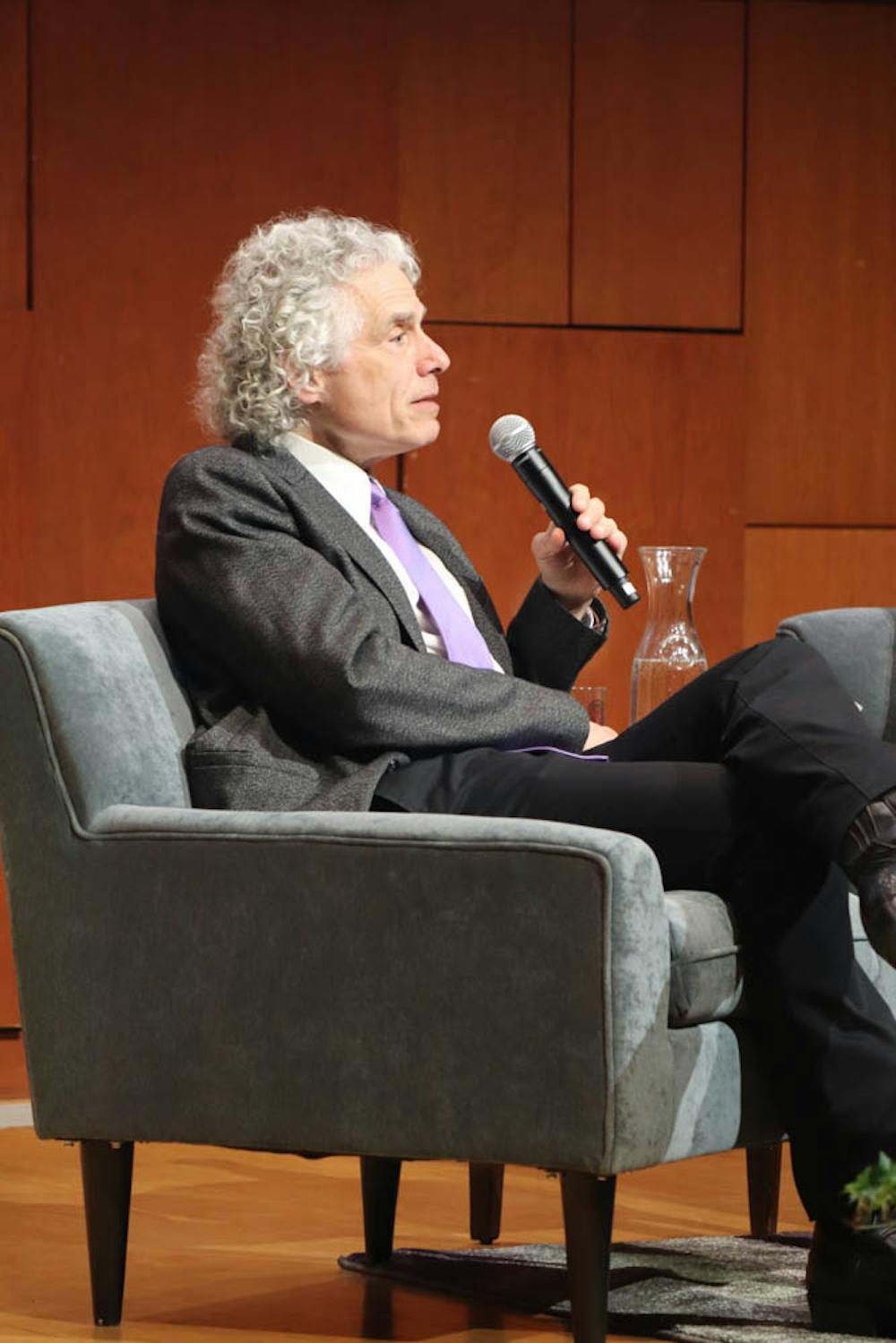Is humanity progressing? In short, yes. Acclaimed cognitive scientist Steven Pinker and Nobel Laureate economist Paul Krugman discussed why this is the case during the Brown Political Theory Project’s Janus Lecture Tuesday.
Defining his approach to this question, Pinker said progress consisted of “life, health, sustenance, prosperity, peace, freedom, safety, knowledge, quality of life (and) happiness.”
Turning to data, Pinker presented global trends in each of these areas. The graphs covered different spans of time with some showing changes over the last century and one showing growth over the past two millennia. Several graphs ended in 2016.
Some graphs showed increases in life expectancy rates, education levels, literacy rates, IQ scores and classical liberal values. Other graphs showed falling rates of child mortality, extreme poverty, famine, homophobia, racism and suicide.
Pinker also used the graphs to highlight exceptions to global trends. For example, while the global suicide rate has declined recently, the United States recently has seen its rate rise, according to Pinker’s data. At the same time, his data showed the global population appearing to grow happier.
After presenting his data, Pinker argued in favor of humanism and rationality, saying that progress is not inevitable. “There are alternatives to humanism, such as religious morality, authoritarian nationalism and populism,” which oppose progress as he defined it, he said.
Picking up where Pinker left off, Krugman said the broad question of whether humanity is progressing was actually a two-part inquiry. He asked the audience, “Have we progressed?” and “Will we continue to progress?”
While Krugman agreed with Pinker that humanity has been progressing over the course of history, the future still worries him. Citing “episodes of retrogression” in human progress, Krugman argued that such setbacks can recur. “The fact of our progress is real (as is) … the chance that it goes into reverse,” he said.
Krugman and Pinker both then expressed a sentiment that every decade people perceive humanity to be on “the edge of a precipice.”
To maintain human progress, the two speakers said policymakers cannot dismiss or ignore scientific findings.
Politicians should not blame “evil people” for problems but instead take responsibility for their own “ignorance and not knowing how to solve our problems,” Pinker said.
At the same time, Krugman said he felt that some politicians “are doing the wrong thing because they believe things … that are simply not true.”
To combat this, Pinker insisted on the importance of improving the quality and accessibility of education and “elevating the quality of discourse in the public sphere, including newspapers.”
Pinker urged students in the audience to use their education to tackle pressing issues. To that end, Pinker said he felt “disappointed to see so many people going into finance,” which prompted the audience’s applause.
“These really smart students (are) figuring out how to make some very, very, very rich people even richer, as opposed to figuring out ways of carbon capture and storage (and) Alzheimer’s disease,” Pinker said.
“Also, vote,” Krugman added promptly, to further applause.
During the question and answer session, Bilal Memon ’22 asked Pinker whether he agreed with the “characterization of Western Europe saving the world” given the association of rationalism and humanism — two ideas essential to progress in Pinker’s paradigm — with the region.
Pinker responded that “it is a mistake to equate Enlightenment ideas with Western ideas” without acknowledging other Western ideas like fascism and communism.
After the lecture, Memon said he found Pinker’s response inadequate. “By centering the Enlightenment as a historical period in the discourse about rationality, you are centering a white narrative and centering a Western European narrative and ignoring the other intellectual traditions which have contributed to progress,” he said.
But, Pinker told The Herald, despite the differences between people from diverse backgrounds, the “common denominator ultimately has to be our rationality and our consciousness, our ability to suffer and flourish.”
“What’s going to happen in 2050 very much depends on what we do now,” Pinker said, “and on the results of thousands of conversations such as the one we’re having now.”





